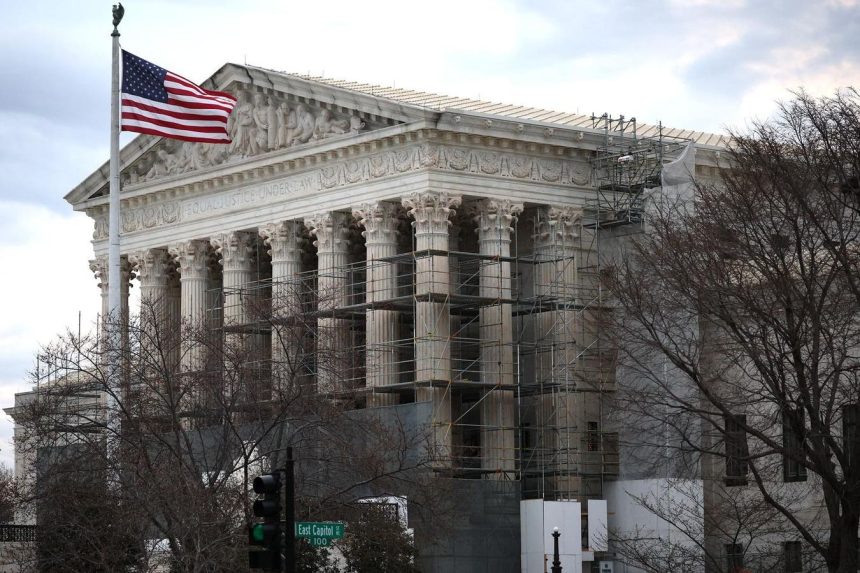Wall Street’s top watchdog, the Financial Industry Regulatory Authority (FINRA), faces a pivotal moment amid converging legislative and legal challenges that could potentially reshape the future regulatory landscape. The regulator notched a win on Monday, however, as the Supreme Court declined to hear a penny stock broker’s legal challenge to FINRA’s constitutionality.
Until recently, adding pressure to FINRA’s current predicament was its legal battle with Utah-based brokerage Alpine Securities, which was fighting against an expulsion order imposed by the regulator and contended that FINRA’s disciplinary process is unconstitutional. In an investigation published in September 2024, Forbes delved into the contentious history between Alpine’s owner, John Hurry, and FINRA. Alpine and Hurry’s second firm, Phoenix-based Scottsdale Capital Advisors, specialize in “liquidating” risky penny stocks and have a long track record of enforcement actions brought against them by regulators like FINRA and the SEC.
FINRA originally attempted to expel Alpine in March 2022 for rule violations that revolved around the firm spiking customer account fees by 60,000% three years prior and then repeatedly violating a cease-and-desist order. Alpine’s subsequent arguments on FINRA’s constitutionality hinge on the private nondelegation doctrine and the Appointments Clause, raising questions about the extent to which a private entity and self-regulatory organization can wield governmental power without governmental accountability.
A federal appeals court in D.C. sided partially with Alpine in November 2024, ruling that FINRA can no longer expel brokerages like Alpine without first getting approval from the SEC. Alpine then asked the U.S. Supreme Court to completely halt all of the proceedings against them, however, Chief Justice John Roberts denied this request in March 2025, allowing FINRA to continue—though the requirement for SEC review remained. The broader constitutional challenge mounted by Alpine remained in play—with the firm requesting for the Supreme Court to step in and take on the full case. Just last week, the Justices met to discuss the request and on June 2, it was announced that the Supreme Court had turned down Alpine’s appeal and declined to take up the case. The decision is a major win for FINRA on one front of a broader battle against threats to the authority of SROs.
“FINRA is pleased with the Supreme Court’s ruling,” according to a spokesperson for the organization. “It is FINRA’s position that, for multiple reasons discussed in its brief opposing Alpine’s petition for writ of certiorari, the case did not meet the Supreme Court’s standards for review.”
While FINRA appears to have warded off Alpine’s years-long legal challenge, debate around self-regulatory organizations (SROs) continues to persist. At the heart of this continuing discussion is H.R. 2689, the “Restoring Accountability in Market Supervision (RAMS) Act,” a bill introduced on April 10 by Congresswoman Lisa McClain (R-Mich.).
The introduction of this bill by a prominent member of the House Financial Services Committee is a strategically timed move that amplifies existing debate around FINRA as a private SRO. Though brief—consisting of only several pages, the bill never explicitly mentions the financial regulator. The legislation itself proposes to transfer the rule-making, examination, and enforcement authorities of all “registered national securities associations” to the Securities and Exchange Commission (SEC), but McClain has made it clear in public statements that FINRA is her target.
“FINRA has drifted far from its intended purpose of safeguarding investors and ensuring fairness in financial markets,” she said in a press release announcing the bill. “It’s past time for Congress to put an end to FINRA’s abuse of its authority,” said McClain. “This bill puts the power back where it belongs—with a federal agency that is subject to congressional appropriations and oversight.” Requests for comment from Congresswoman McClain’s office went unanswered.
In response to the mounting scrutiny, FINRA has defended its long-standing role in the financial ecosystem. “For 85 years, FINRA, the private, self-regulator of broker-dealers, has protected investors, promoted market confidence and safeguarded market integrity at zero cost to the American taxpayer,” a spokesperson for the organization told Forbes. They underscored FINRA’s model, which allows it to “keep pace as capital markets constantly evolve” by taking input from all market participants.
FINRA licenses and oversees 628,000 brokers and 3,300 firms including Charles Schwab, Merrill Lynch and Fidelity. It has 4,300 employees and a budget (mostly funded by its members) of $1.5 billion—rivaling the SEC’s 5,000 employees and $2.2 billion budget.
Experts in financial regulation express considerable skepticism regarding the practical implications of transferring FINRA’s vast responsibilities to the SEC. “This strikes me as really irresponsible to take the cop off the beat without making any provision for additional funding or resources for the SEC to assume FINRA’s responsibilities,” says Benjamin Edwards, a professor of law at the William S. Boyd School of Law at the University of Nevada, Las Vegas. He highlights the sheer scale of FINRA, noting it is roughly as large as the SEC and questioned the logic of transferring its duties without commensurate appropriations for the federal agency. “The SEC simply does not have the capacity to take over FINRA’s operations,” he says, concluding, “I doubt this legislation has any serious chance of passing.”
Alma Angotti, a former senior enforcement attorney at both the SEC and FINRA who now works as a senior managing director at FTI Consulting, echoed these concerns. “The SEC absolutely could not absorb FINRA’s functions, which include regulation, inspections, and enforcement, without a significant increase in funding and personnel,” she says. FINRA employs a large number of people working in each of those functions, she notes: “It’s hard to see how the SEC could perform them with significantly fewer personnel.”
Angotti also highlighted the financial implications, noting that while FINRA is industry-supported, if the SEC were to take over, it would likely need to impose significant additional fees on industry members to fund any new activities. Angotti further warns of potential regulatory gaps during such a transition: “At least for a while, there is going to be a lot of uncovered territory… Nobody is going to be enforcing it in theory.” She emphasizes the value of FINRA’s self-regulatory model, particularly the input from industry experts whose contributions to rules and training were invaluable during her time working at the organization.
The legislative push by Congresswoman McClain is not an isolated event but rather part of a broader trend of intensified scrutiny facing FINRA. Some experts have noted that the bill could be a signal of support for the Project 2025 agenda, which calls for abolishing FINRA. McClain and other Republicans like Representative Ann Wagner (R-Mo.) have characterized FINRA as an “overzealous and unaccountable quasi-governmental entity” that imposes “unnecessary and excessive costs” on the industry. Congresswoman Maxine Waters (D-Calif.), the highest-ranking Democrat on the House Financial Services Committee, has also been vocal, criticizing the regulator for being “controlled by the financial industry,” imposing “weaker penalties” and lacking a cap on executive compensation. Congresswoman Waters did not respond to requests for comment by press time.
The self-regulatory model still faces unprecedented levels of scrutiny and debate. While experts like Edwards and Angotti doubt the immediate passage of the McClain bill due to the immense logistical challenges of having the SEC absorb FINRA’s functions, there is a consensus that some internal reforms, particularly around enforcement and arbitration processes, are likely inevitable.
The debate now has more broadly grown into one about the fundamental balance between industry self-regulation and direct governmental oversight of markets. The outcome of these converging pressures and subsequent decisions could shape the future of financial market regulation for years to come.
Read the full article here
















